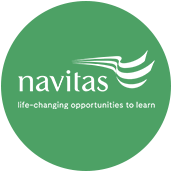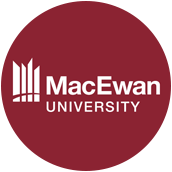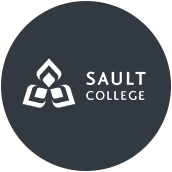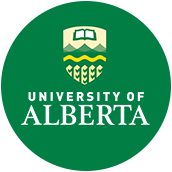A comprehensive guide to
Part-time jobs in Canada for Indian Students
Job Opportunities
Students from different parts of the globe recognize Canada as a leading college nation resting on superior instructional standards, assorted cultures, etc. To begin with, many students select the kind of part-time jobs that not only give them sufficient money for living and student provisions but also develop brilliant skills that may be used when being at school.
International students can work part-time jobs in Canada with government permit or approval. Part-time work in Canada is flexible and can be done on evenings and weekends. Part-time jobs offers international students a convenient way to ease financial burdens while pursuing studies, as well as a chance to develop skills and establish networks that may pave the way for future career prospects.
Eligibility for Part-Time Jobs in Canada for Students
International students must fulfill specific conditions based on the position's nature and the student's status to be hired for part-time jobs in Canada.
Eligibility Criteria for On-campus Part-Time Jobs in Canada
Eligibility Criteria for On-campus Part-Time Jobs in Canada
Eligibility Criteria for Off-campus Part-Time Jobs in Canada
Rules and Regulations for Students Working in Canada
Types of Part-Time Jobs Available for International Students
On-campus Jobs
Off-campus Jobs
Co-op Placements or Internships
How to Find Part-Time Jobs in Canada for International Students?
Average Pay for Part-Time Jobs in Canada
Average Pay Scale
Minimum Wages by Province
Paying Taxes as an International Student in Canada
Study in Canada
Study Abroad Exam
Enquire Now
Not sure what you are looking for? Fill in the details to get a call-back.
Explore universities & colleges
Top Universities In Canada For Indian Students.
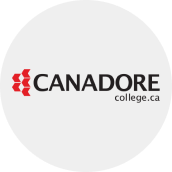
Canadore College - Stanford Mississauga Campus
Ontario, Canada • 14 Programmes
Tuition Fee : CAD 14500 - 15000 / year

Cambrian at Hanson - North York Campus
Ontario, Canada • 9 Programmes
Tuition Fee : CAD 17500 - 18000 / year
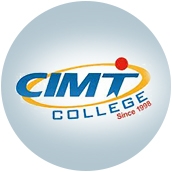
Canadian Institute of Management and Technology (CIMT) - Scarborough Campus
Ontario, Canada • 7 Programmes
Tuition Fee : CAD 11000 - 14000 / year


Georgian College - Orangeville Campus
Ontario, Canada • 7 Programmes
Tuition Fee : CAD 14000 - 14500 / year
Not sure what you qualify for?
Search for options that you are eligible for from 10s of Thousands of programs.
A-Z About admissions
A-Z of admissions, covered Pre to Post
Book a free counselling Session?
Answer a few question and receive handpicked college recommendation best for you
Study Abroud Exam
Popular English Language Proficiency Exams
Blogs and Articles
Study in Canada Blogs & Articles
Updated on • May 24,2024 04:49 PM IST • Study in Canada
Top Universities For Computer Science Courses in Canada
Updated on • May 27,2024 05:33 PM IST • Study in Canada
Increase Your PGWP Duration with 2 Years of Study in Canada
Updated on • May 22,2024 10:58 AM IST • Study in Canada
Canada Increases Off-Campus Working Hours for International Students
Updated on • May 22,2024 05:48 PM IST • Study in Canada
Student Education Loan to Study in Canada - Eligibility, Documents Required, How to Apply
Updated on • May 18,2024 03:27 PM IST • Education Loans
Teaching Courses in Canada for Indian Students
Updated on • May 17,2024 11:26 AM IST • Study in Canada
Universities in Canada for International Students
Updated on • May 14,2024 11:49 AM IST • Study in Canada
Colleges in Canada for International Students
Updated on • May 09,2024 05:17 PM IST • Colleges in Canada
Finance Courses & Universities in Canada
Updated on • May 02,2024 05:16 PM IST • Courses in Canada
Guide to Student Housing in Nova Scotia
Updated on • Mar 29,2024 10:49 AM IST • Study in Canada
Updated on • Mar 29,2024 11:47 AM IST • Study in Canada
Masters in Geology in Canada: Colleges, Courses, and Fees
Updated on • Mar 28,2024 11:32 AM IST • Study in Canada
Project Management Courses in Canada: Eligibility, Cost, Universities and more
Updated on • Mar 19,2024 03:09 PM IST • Courses in Canada
Study Loan for Canada : A Complete Guide
Updated on • Mar 18,2024 05:23 PM IST • Education Loans
Colleges in Edmonton Canada for International Students
Updated on • Mar 18,2024 04:10 PM IST • Colleges in Canada
Data Science Courses in Canada: Universities, Fees, Requirements, Scholarships, Salary and More
Updated on • Mar 02,2024 04:20 PM IST • Study in Canada
Updated on • Mar 01,2024 03:19 PM IST • Study in Canada
Master's in Management (MIM) in Canada: Universities, Eligibility, Cost, Process and more
Updated on • Mar 01,2024 12:56 PM IST • Study in Canada
MS in Sports Management in Canada: Courses, Fees and Entry Requirements
Updated on • Feb 29,2024 04:17 PM IST • Study in Canada
Master's Scholarships in Canada: Types, Top Universities, Eligibility and Process
Updated on • Feb 28,2024 11:35 AM IST • Study in Canada
Lets get your queries resolved! Session?
Got a question? Ask and discuss with 100,000+ study abroad aspirants and experts
FAQ's
FAQ's Study In Canada
How much does it cost to study in Canada?
Canada is an affordable country to study as compared to many others. You will likely need between CAD20,000 and CAD30,000 per year to cover tuition. The range is a guideline only, and the exact number will depend on your school and program. The cost of housing, food, and other living expenses will vary based on your location and personal needs.
